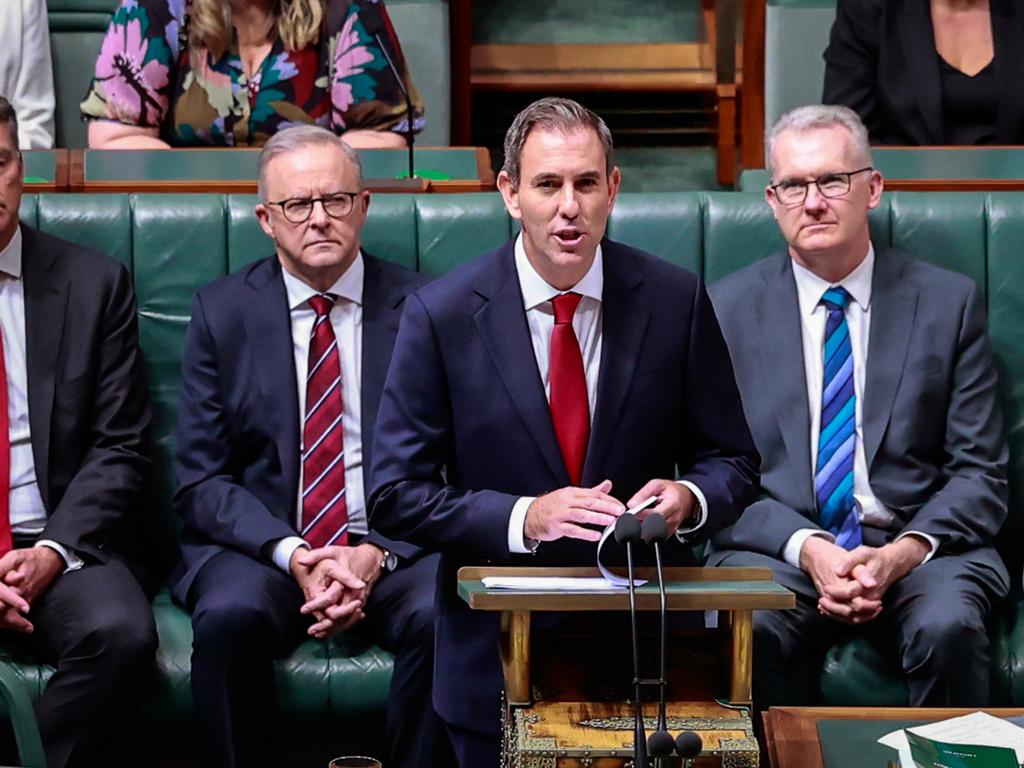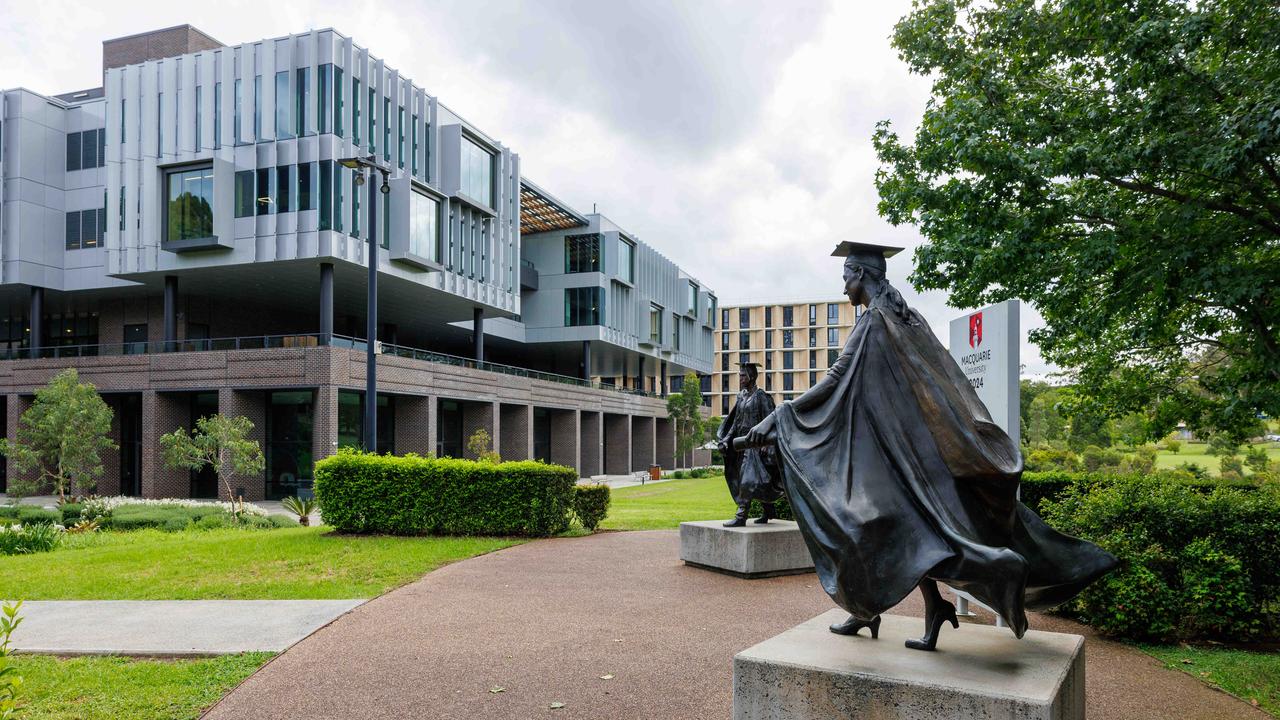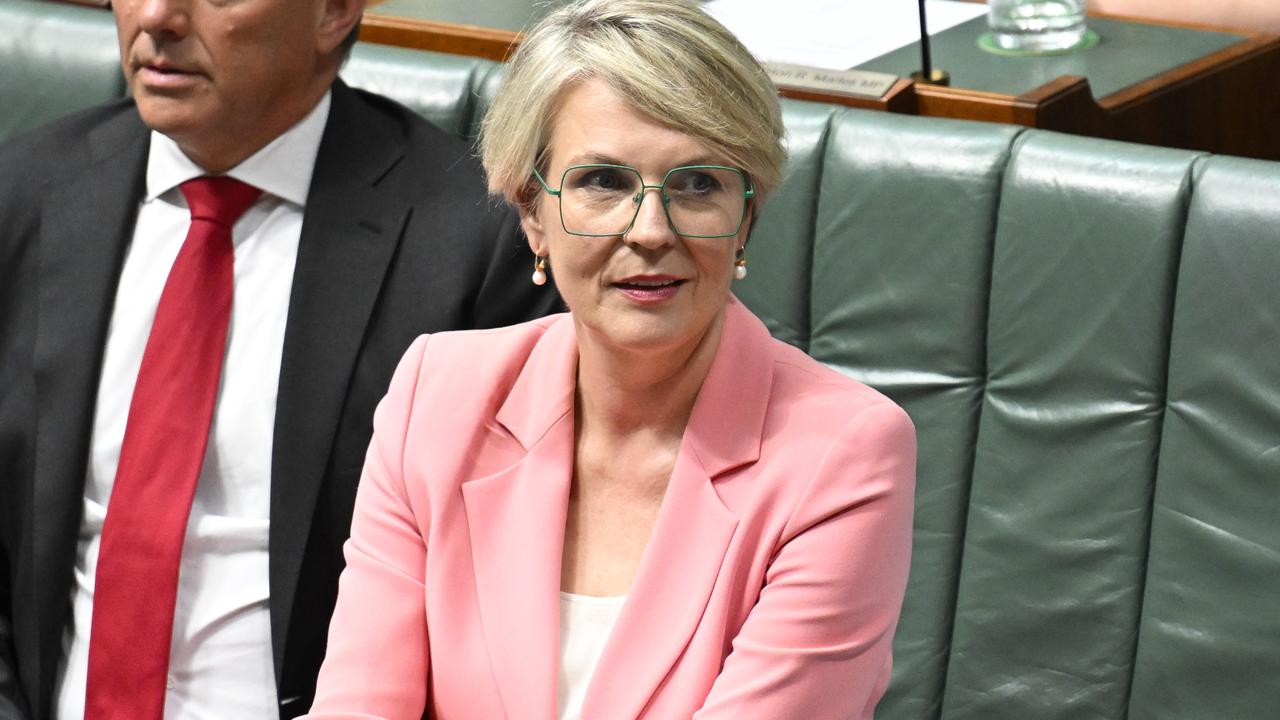Smart policy will be the first casualty in a wild campaign
During the election campaign, the major party leaders won’t be talking about the hard years of fiscal repair ahead of us.
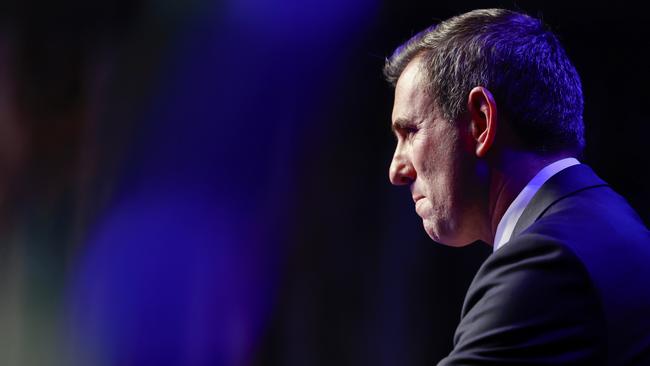
After the shock and awe of the Big Inflation, Australia will head to the polls eyeing the prospect of a soft landing for the economy and more interest-rate cuts. We may, touch wood, still be travelling on what Reserve Bank governor Michele Bullock calls the “narrow path” to economic salvation this year.
But we’re not out of danger and fragilities abound. The trade shock is here – which will extract a tangible cost in fewer jobs and weaker growth, as well as a psychic blow – and we are not as strong as we could be to confront the moment.
Jim Chalmers argues there’s a tendency to talk about economic shocks as a “break in the flow”. But the past 20 years, the Treasurer told the National Press Club on Wednesday, proved global shocks “are chapters in their own right”. “They no longer interrupt the story – they are the story,” he said.
In the afterglow of his fourth budget, Chalmers claimed that as global conditions took a turn for the worse, the “seismic changes in the world validate and vindicate our strategy, rather than undermine it”. Don’t be distracted by the customary alliteration and bonus assonance, it’s an outrageous statement.
Let’s not diminish the Treasurer’s task of helping families with their household bills while trying not to add to the inflation problem. Or managing the spectacular tax windfalls amid the stampede of spenders in cabinet, Anthony Albanese out in front of the hungry herd. As an overly empathetic Bullock is wont to commiserate, governments have a lot to do. Maybe they should retreat; less is more.
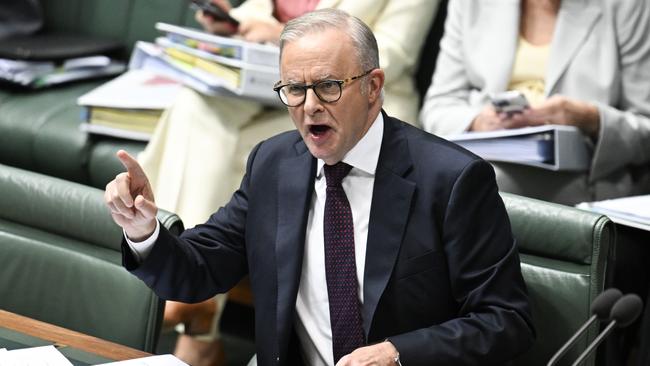
As one wise observer put it this week, the budget “could have been a lot worse”. Imagine if Peter Dutton had chaired the expenditure review committee! Pitying taxpayers and future workers, I judged it a gutless budget. Thursday evening’s budget-in-reply by the Opposition Leader elicited another gastrointestinal dimension: it was flatulent. The speech had a staccato rhythm, while the Aussie gas for Oz and cheaper bowser fumes will linger.
In any case, the hard years of fiscal repair are ahead of us, not behind us; the budget is on the wrong track and the political system is neither able to switch course nor slow down. In a decade, given current spending trends, geopolitics, absence of fiscal guardrails and a defective structure, the budget easily could deteriorate to a deficit three times as large as it is today.
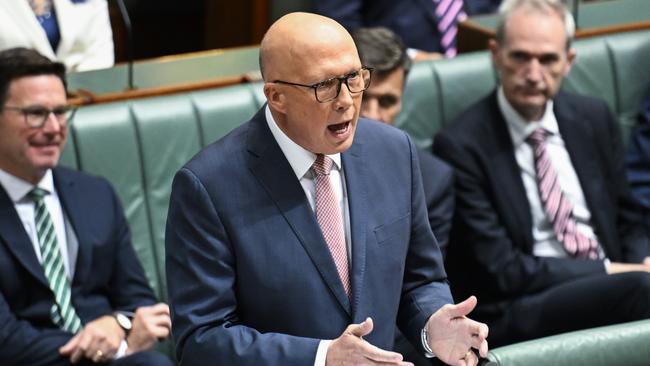
Yet other countries are doing the work, perhaps in more torrid circumstances than our own, even playing against type or in a panic.
Rising borrowing costs and forecasts slashing Britain’s economic growth in half to 1 per cent had opened a $29bn fiscal hole for the new government. This week British chancellor Rachel Reeves was forced to revise a budget she had delivered in October 2024.
As the Financial Times reported, “it was a repair job, carried out through a mixture of welfare cuts, reductions in planned day-to-day spending, a crackdown on tax evasion and a blitz on civil service efficiency, all announced with a minimum of fuss”.
In her spring statement to parliament on Wednesday, Reeves spoke about a “world changing before our eyes”, echoing Chalmers’ budget speech the previous day. These Anglophone finance types probably have their own secure group chats and swap notes.
“The job of a responsible government is not simply to watch this change,” Reeves said. “This moment demands an active government. A government not stepping back but stepping up.”
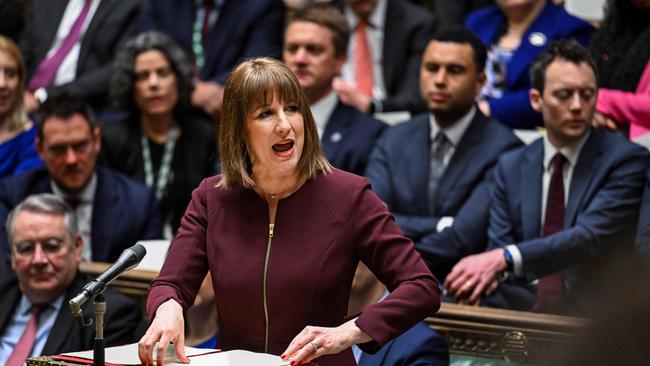
Critics argue she stepped too early, too far, given Labour’s mantra of stability, reform and growth.
Last week, Germany’s parliament passed a mammoth defence and infrastructure spending plan, worth as much as $1.7 trillion across a dozen years, as the ailing nation removed restrictions on debt. The move generated optimism in an economic sphere confronting weak growth, huge structural problems and disunity over a plan by Brussels to boost defence spending via low-cost loans to EU member nations.
Incoming conservative German chancellor Friedrich Merz said security threats from Russia and economic stagnation meant bold actions were required by the continent’s powerhouse. It was a radical departure from the nation’s recent history – and wildly popular.
Different strokes for different folks. British Labour force-feeding a budget consolidation, Germany’s Christian Democratic Union unleashing the “fiscal bazooka”, as the press has termed it. Polling day for leaders in London and Berlin are, for now, on the distant horizon, but you sense the honeymoons, such as they are, won’t last, although Donald Trump is inadvertently pumping up the popularity of other world leaders. The threat from his tariffs here is real, even though Treasury’s estimates in a range of scenarios show the likely direct hit is relatively small for us but much larger for the US, including for inflation.
The US Federal Reserve recently has cut back its growth forecasts for the American economy this year and next, which are below Treasury’s estimates of 2 per cent growth there. Last week the Fed held its policy rate steady and signalled that it was “not in a hurry” to loosen its monetary setting.
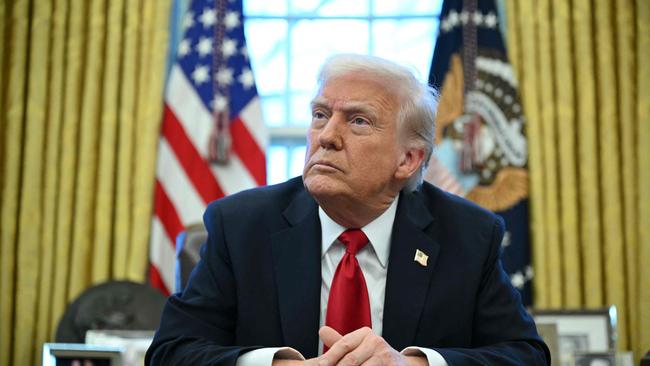
If countries retaliate against the US President’s imminent reciprocal imposts, the stakes will rise again. For our officials, the worry is the second-round hits to jobs and growth, rather than inflation, and the interminable uncertainty that adds a risk premium; it extends to business decisions about expansion and innovation, and families trying to plan for future commitments.
Challenger chief economist Jonathan Kearns says “the budget paints a picture of an economy slowly recovering from an extended malaise”. The budget papers note “a soft landing in our economy is increasingly likely” and that we are relatively well placed to navigate the global uncertainty. Across the past three years, employment here has grown by a cumulative 10 per cent, outpacing job creation in the US, Canada, New Zealand, Britain and the euro area. Only the US has expanded its economy more than we have.
For Australia, recovery will be a slow grind, with consumers wary even as disposable incomes improve because of lower inflation, wage rises, tax cuts and lower interest costs. Growth will ease because of the effects of Cyclone Alfred; the jobless rate is expected to rise a little from its current level.
Of more concern is our inability to lift our long-run potential or, as some term it, the supply side of our economy. We’ve settled into, at our best, a “2 and a bit” per cent growth rut. Treasury has again pared back the long-run level of potential real GDP, a combination of productivity, population and participation (the last two we seem to have maxed out post-pandemic).
“This reflects continuing weak underlying productivity growth, which predated Covid-19 pandemic-related disruptions,” Treasury notes in its economic outlook. Treasury returns to its long-run productivity growth assumption of 1.2 per cent a year, but we have been well short of that for a decade.
It’s the same in many other nations. Like Bullock, Bank of England governor Andrew Bailey confronts the question of what it will take to raise the rate of economic growth without igniting inflation. In a speech this week, Bailey said that as in Adam Smith’s day more than 200 years ago, free trade and technology held the key to extending our productivity frontiers.
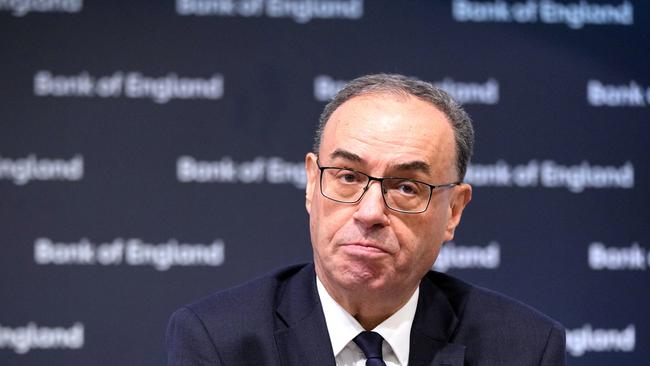
He said the transformative potential of AI as a general purpose technology (like electricity or computers) was the hope of the side. “Growth also requires strong institutions and public policies to provide a supportive environment,” he told a University of Leicester event.
Productivity Commission deputy chairman Alex Robson says “our productivity problem is not a flash in the plan”. “This is a long-term, structural challenge that requires dedicated attention from government and industry,” he said.
Chalmers argues the economy has turned a corner and we’re in better shape than anywhere else to confront the world coming at us. That claim melts, even in a Canberra autumn, when you consider productivity. The Treasurer remains of the view that improving workplace bargaining is akin to “scorched-earth industrial relations”.
There have been moves by Labor to encourage competition, through merger law reform, and to harmonise occupational licensing. But, in truth, these are baby steps. The money pot from Canberra for the states to remove regulations and taxes that stop investment and hiring is pitifully small. The business lobby, allegedly of a free-market bent, is reflexively resisting the move to outlaw non-compete clauses in contracts that hinder the free movement of hairdressers, yoga teachers and gym instructors.
That doesn’t mean it’s not worth pursuing reform, even if it is incremental; it just means there’s an endless to-do list of policy tweaks that yield results in the next parliamentary term or the one after that.
If there is a silver lining of sorts from the risks of trade wars, it could be a change in the central bank board’s tone on interest rates.
Commonwealth Bank head of Australian economics Gareth Aird is expecting the RBA to keep the cash rate at 4.1 per cent on Tuesday, while the tariff headwinds lend “support to a more dovish message” from the board. He says the evidence is sufficient to declare “the proverbial inflation dragon has been slayed” and another rate cut is likely in May. “We consider the ‘inflation fight’ won,” he wrote in a preview of the first meeting of the RBA’s monetary policy board.
If policymakers manage the sweet combination of disinflation without tossing a multitude out of work, it will be a triumph of art, science and luck. Maybe even courage to stay the course, in a land increasingly hostile to sensible policy and truth telling, never mind what occurs during our wild and too frequent election campaigns.


